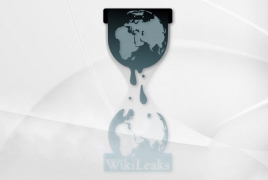
A United Nations panel ruled Thursday, Feb 4, that Wikileaks founder Julian Assange is being unlawfully detained in London, the Sydney Morning Herald reports.
However, the ruling by the UN's Working Group on Arbitrary Detention, is not binding in Britain.
The Foreign Office said Britain continues to have a legal obligation to extradite Assange to Sweden.
Assange, 44, has said he will use the ruling – which is an influential opinion based on international and domestic law – to push for the return of his passport and a guarantee that he is no longer subject to arrest. But he is unlikely to leave the embassy and risk arrest until these conditions are met.
There is now a warrant for the arrest of Assange, after he sought asylum at the Ecuadorian embassy in 2012 to avoid extradition to Sweden over sexual assault allegations.
British police said "if he leaves the embassy we will make every effort to arrest him".
Though police recently ended their 24/7 visible guard outside the embassy, they have covert surveillance in case he tries to leave.
Assange says he fears the Sweden extradition would be followed by extradition to the US to face espionage charges over his work with WikiLeaks.
The Geneva-based UN group was due to announce the findings of its investigation on Friday, the SMH says. It made the decision several weeks ago and informed the countries involved in the case, including Britain and Sweden.
Earlier on Thursday Assange tweeted that "should the UN announce that I have lost my case … I shall exit the embassy at noon on Friday to accept arrest".
However, if the decision was in his favor "I expect the immediate return of my passport and the termination of further attempts to arrest me", he said.
On Wednesday, Assange's lawyer Melinda Taylor told Fairfax Media that his physical departure from the embassy would be contingent on the British government allowing him safe passage to Ecuador.
"[There remains] the risk of potential extradition to the United States, where he is likely to be subjected to persecution or cruel and inhumane treatment due to his whistleblowing activities," she said.
Assange's lawyers had argued to the UN that their client's apparent freedom to walk out of the embassy at any time was "completely illusory" because of the prospect of his immediate arrest.
A spokeswoman from Britain's Foreign Office said they would "not pre-empt any opinions from the UN Working Group on Arbitrary Detention".
"We have been consistently clear that Mr Assange has never been arbitrarily detained by the UK but is, in fact, voluntarily avoiding lawful arrest by choosing to remain in the Ecuadorean embassy," she said. "An allegation of rape is still outstanding and a European Arrest Warrant in place, so the UK continues to have a legal obligation to extradite Mr Assange to Sweden."

